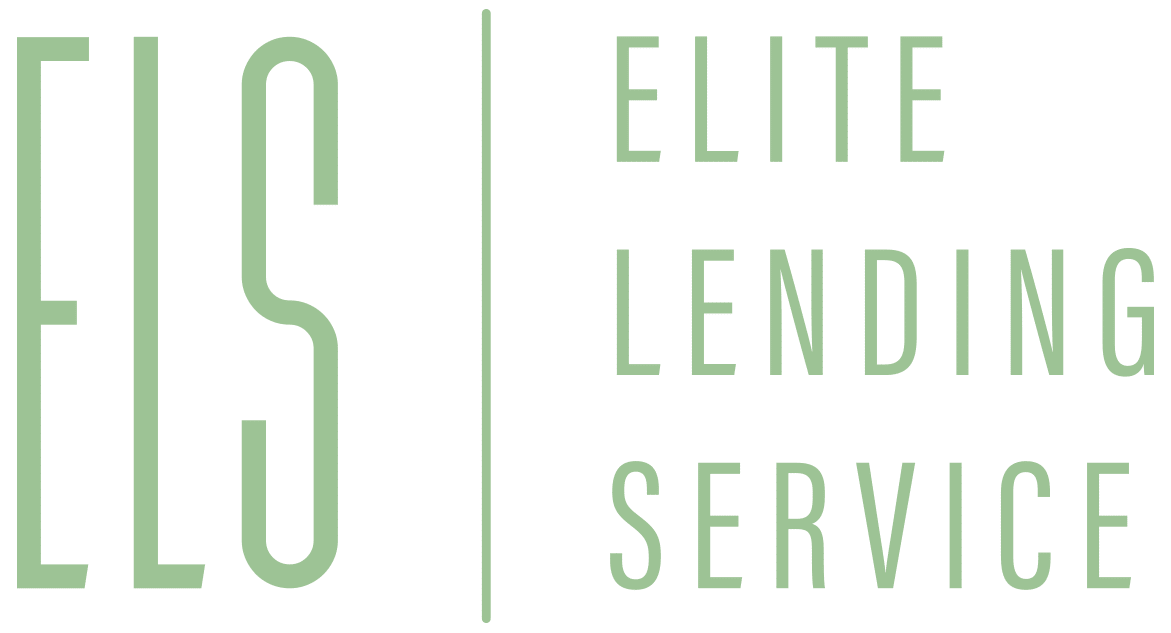Table of Contents
Wondering How Does Mortgage Insurance Work for an FHA Loan? This cost is crucial for many homebuyers, so let’s break it down. FHA mortgage insurance makes homes cheaper and easier to get into. It levels the playing field for folks who have lower credit scores or can only afford a tiny down payment.
An FHA loan is unique. It welcomes lower credit scores and asks for a down payment of just 3.5%. Since it makes that possible, the loan also comes with mortgage insurance. Think of it as a cushion for lenders, so they can feel confident letting more families into homes sooner.
Knowing how this insurance works is step one for smart buying. It affects your loan cost and monthly budget. To get a full picture, open our homebuyers guide for extra details.
Key Takeaways
- FHA mortgage insurance makes sure lenders stay covered if a borrower can’t pay back the loan.
- You pay upfront mortgage insurance premium (or MIP) equal to 1.75% of the total loan. This fee must be paid before your FHA home purchase moves forward.
- Besides the upfront fee, a smaller calculated MIP hits your monthly payment—its rate differs by how much money you put down and the total loan amount. This makes budgeting a little trickier.
- How long you keep making monthly MIP payments sways with your down payment. More upfront money means you pay insurance for a shorter number of years.
- FHA loans remain popular because they allow home buyers with modest credit scores and small down payments to keep the dream of home ownership alive.
What Is FHA Loan Mortgage Insurance?
When you’re turning to an FHA mortgage insurance it is what helps level the playing field so you can buy your home with a small down payment and fair chances, even if your credit isn’t perfect. Learning how the FHA mortgage insurance works is a must if you’re house-hunting.
Definition and Overview
The FHA mortgage insurance, officially known as the Mortgage Insurance Premium (MIP), comes in two parts: an upfront cost and an annual cost. The upfront charge is set at 1.75% of your loan. So, if you’re borrowing $350,000, you’d pay $6,125 at closing, adding the extra cost directly to your mortgage balance.
You also pay an annual premium. The exact amount depends on your loan size and how much you’re putting down. This part is key because it secures the lender if something goes wrong and the mortgage isn’t fully paid back. Understanding both parts of the MIP helps you budget right from the start.
Purpose of FHA Mortgage Insurance
The insurance is really in place for the lender’s peace of mind. By collecting these payments, the FHA mortgage insurance can back loans that lenders would worry about if the borrower has a lower credit score or makes a small down payment. What this means for the home buyer is a shot at a mortgage they might not otherwise get, plus a clear path to the door of their first home and a stronger shot at building long-term equity.

Types of FHA Mortgage Insurance
When you get an FHA mortgage insurance you get it in two parts: the Upfront Mortgage Insurance Premium (UFMIP) and the Annual Mortgage Insurance Premium (MIP). Both things protect lenders and let you buy a house with a low down payment.
Upfront Mortgage Insurance Premium (UFMIP)
The UFMIP is a single fee that’s charged right at closing. Right now, it’s set at 1.75% of the loan amount. The fee is small enough to add to the mortgage, so you don’t have to pay it out of pocket right away.
Let’s say you take out a $100,000 loan. The UFMIP would be $1,750. You’d then pay $101,750 over the term of the mortgage. This one-time insurance helps the FHA back loans for more borrowers.
Annual Mortgage Insurance Premium (MIP)
MIP is a regular monthly fee that goes into your mortgage payment. The amount depends on the loan amount, the term of the loan, and the loan-to-value (LTV) ratio. For most loans, that means looking at whether your down payment is 10% or more or less.
If your LTV is 90% or lower, your monthly MIP will be 0.50%. If it’s higher, the fee goes to 0.55%. For loans over $726,200, the MIP is a bit higher, too. Keeping an eye on these numbers means you can budget monthly payments that stay within your range.
Overall, these FHA mortgage insurance types are simple when you crunch the numbers, and they help homebuyers keep track of FHA loan costs.
Cost of FHA Mortgage Insurance
When you get an FHA mortgage insurance a loan is part of the package, and its cost is not the same for everyone. Three main items set the price tag: the loan amount, the size of your down payment, and the length of the loan. At closing, you’ll first hear about the upfront mortgage insurance premium or UFMIP, which is a flat 1.75% of the loan amount. You can pay it right away or tack it on and finance it over the life of the mortgage.
How is it Calculated?
On a yearly basis, the Federal Housing Administration also charges an annual MIP, and that is about to get a little cheaper. Starting in 2025, the yearly amount will drop to around 0.55% for most borrowers. Previously, it was set at 0.85%. To see the math, let’s imagine a starter loan of $200,000 with a 3.5% down payment. You would first see an upfront UFMIP of roughly $3,377.50. Then, for the monthly MIP, you’d add about $88 to your mortgage payment. To track and refine these costs, an FHA mortgage insurance calculator can give you a more exact picture, by entering your specific numbers.
Factors Influencing Cost
Now, not every detail is set in stone. Your loan-to-value (LTV) ratio, which comes from your down payment size, is perhaps the biggest influence. If you put less than 10% down, the annual mortgage insurance stays with you for the full loan term. While that lowers the upfront hit, it can make the cost of financing the home add up over the years, so it’s wise to factor it into your overall mortgage picture.
Putting down 10% or more on your FHA loan limits your mortgage insurance to just 11 years. This short-term coverage can save you thousands over the life of the loan. To really grasp your FHA mortgage costs, plug your numbers into a mortgage insurance calculator.
FHA Mortgage Insurance Duration Explained
For most FHA borrowers, mortgage insurance is a given. But the length of that coverage can really impact your wallet, so it’s crucial to know the rules.
How Long is FHA MIP Required?
If you put down 10% or more, MIP drops after 11 years. But if your down payment is less than 10%, you’ll be stuck paying MIP for the life of the loan—no exceptions. This is especially important for loans closed on or after June 3, 2013. If you can’t refinance down the road, the insurance could cost you more than the mortgage interest rate itself.
How to Cancel FHA MIP
To get rid of FHA mortgage insurance premium (MIP) on your loan, refinancing into a conventional mortgage is the most common route. You’ll need at least 20% equity in your home to qualify. Your loan also has to be in good standing, meaning no late payments on federally backed debts.
A credit score of around 620 or higher is typically required. Borrowers should carefully weigh their refinancing choices, since an FHA Streamline Refinance generally does not eliminate MIP; it may only lower the premium.

How FHA Mortgage Insurance Benefits Borrowers
FHA mortgage insurance plays an important role in helping future homeowners breathe easier as they plan for a future. By offering a range of low-down-payment options, it welcomes buyers who might worry they will never afford a home. For upfront costs, the premium equals 1.75% of the loan amount, while borrowers can make a down payment as light as 3.5%. No wonder it’s a popular choice for first-time buyers.
Lower Down Payment Options
With FHA mortgage insurance, the goal is affordable home financing. In a world where conventional loans often demand 20% of the home’s cost upfront, the FHA path seems friendlier. Borrowers can step onto the property ladder with save as little as 3.5% down. That smaller requirement helps a much larger group of applicants, shrinks the worry about big upfront savings, and gives low-down-payment power to future owners.
Access to Homeownership
Another feather in the FHA cap is its flexible credit policy. FHA mortgage insurance aims to serve borrowers who might be passed over by conventional lenders because of average credit. This thoughtful approach knocks down barriers that keep many renting, helping friends and families realize the dream of homeownership. In the long run, more homeowners lift entire neighborhoods too, making the FHA an everyday good neighbor on the housing market.
FHA Loan Requirements and Qualifications
FHA loans are designed to help more people snag a mortgage, and knowing the ins and outs of the rules is a must if you’re thinking of applying. Compared to standard loans, FHA guidelines offer more wiggle room, especially for folks with lower credit scores.
Eligibility Criteria
For most borrowers, the main credit hurdle is a score of at least 580. If you clear that, you can put down 3.5% of the home’s price. Scores between 500 and 579 bump the required down payment to 10%, still giving you up to 90% financing. These allowances are a game-changer for buyers who might strike out with conventional loans. FHA also caps your debt-to-income ratio at 43% so mortgage costs stay in check relative to your overall income.
Recommended Credit Scores
While the FHA officially recommends a score of 580 or higher, the program keeps a few doors open for people below that threshold. Borrowers in the 500-to-579 range can still qualify, reflecting the FHA’s mission to support buyers who have faced financial squeezes in the past. The hopeful twist? A score below 580 simply means a bigger down payment, not an automatic no. This margin of error moves more people closer to owning a home and helps the housing market stay inclusive.
The FHA Loan Process Explained
Knowing how the FHA loan process works helps homebuyers move confidently. It includes set steps from the prequalification stage to the final settlement at closing. Initially, prospective buyers get prequalified. They then compile key documents, such as proof of income and a recent credit report.
When the lender receives the documents, they conduct a careful appraisal of the application. They decide whether the borrower qualifies and determine how much financing they will allow.
Mortgage insurance comes into play here. It safeguards the lender against losses if the borrower cannot repay. This insurance comprises both a lump sum paid at closing and a smaller amount paid each month. Being aware of these added expenses helps borrowers fit their loan into their overall budget.
Homebuyers should keep an eye on changes to the FHA program as well. Even small updates can speed up the application and keep it trouble-free.
Why Choose Elite Lending Service?
Selecting the best mortgage broker can make the home-buying process a lot easier. Elite Lending Service stands out, thanks to their strong focus on the FHA loan market. Founded and still led by Brad Bailey, the company offers expert guidance in FHA loan applications. The team takes the time to explain the entire process, ensuring borrowers understand their financing options and the documents they need.
Expertise in FHA Loan Applications
Elite Lending Service stands out for its deep knowledge of FHA loans. Their team simplifies the financing process, guiding North Metro Atlanta clients through the details. With a 3.5% down payment for borrowers with a 580 or higher credit score, they get approvals moving quickly. They also break down upfront and yearly mortgage insurance, so no fee feels like a surprise.
Personalized Customer Service
Personalization is the foundation of their lending process. Every mortgage consultant takes the time to learn a client’s unique story—income, debts, and homeownership dreams. Elite Lending Service then offers a carefully tailored road map, ensuring the support is timely and the counsel is truly in the client’s best interest.
Contact Elite Lending Service for Guidance
Thinking of FHA financing? Elite Lending Service is ready to provide clear, friendly guidance. They assist first-time buyers and those refinancing, ensuring every client feels confident. Reach the team at (904) 263-0376 or brad@elitelendingservice.com.
Their pros know FHA rules inside and out. They explain credit score thresholds, down payment options, and everything in between. The advice is straightforward and built for the individual’s budget and home-purchase goals.
The sooner you connect, the sooner the dream home becomes a reality—with less worry and more focus on settling in and enjoying the new space.

